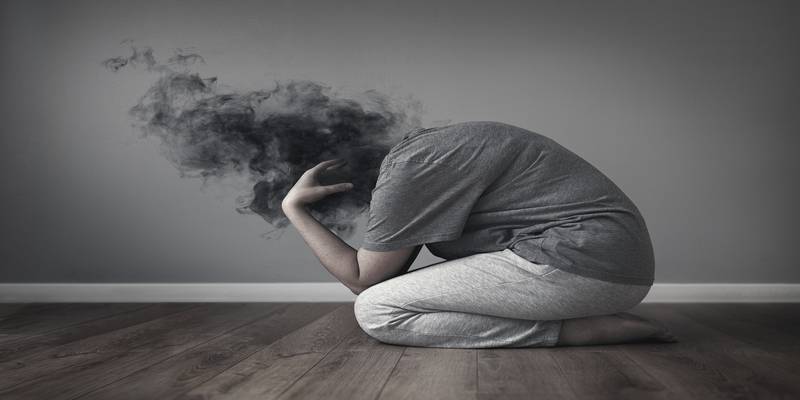Mental health among South Asians in Hong Kong

Mental health plays a crucial role in our well-being as it contributes significantly to different aspects of our daily life and decision-making. Poor mental health is a result of a variety of environmental, societal, and individual factors. These risk factors include stress, physical inactivity, financial issues, and even substance abuse. However, there are research studies that correlate certain genes that expose one’s vulnerability to certain types of mental disorders. In this feature, we’ll get to know how different demographics of South Asians are exposed to a higher incidence of mental disorders, especially immigrants who reside in Hong Kong.
South Asia contributes a quarter of the world’s population, and the Asian continent itself has a high burden of mental disorders. Interestingly, South Asians are one of the fastest-growing immigrants on the globe. For immigrants, difficulties in coping with acculturative stress are profound as there is intergenerational conflict, discrimination, and depression. They are susceptible to psychological distress due to migration, pressures to acculturate, and many social determinants such as education, social class, and income. The three main South Asian demographic groups that we will discuss are youth, women, and men.
Youth
Youngsters who are brought up in countries other than South Asia face many societal stressors that expose them to different mental health disorders. Intergenerational and cultural conflict, academic pressure, relationship problems, financial stress, and family difficulties are major stressors. These stressors expose the youth to mental disorders such as depression, anxiety, and substance abuse (alcohol, tobacco, marijuana, etc.). South Asian youth are often not well-informed regarding mental health and lack awareness as social stigmas towards mental health are prevalent in South Asian cultures.
Many youngsters with poor self-esteem or mental disorders often commit suicide or engage in substance abuse and addiction, which has a negative impact on their lives. First-generation South Asian youths, who are raised outside of South Asia, often face discrimination from peers due to major cultural differences. Identity crisis is another issue that they have to encounter. Youngsters are influenced by cultural conflict and stress that occurs between their own ethnic culture and the dominant culture of the host country they reside in.
Moreover, many South Asian youths face interpersonal problems with family members due to vast clash in cultural conflicts at home and outside the home, such as in school and social circles. Being stuck between the majority and minority cultures, it is difficult to assimilate into a new cultural environment, which in turn exposes them to highly intensive acculturative stress, which is often neglected by schools and their families. These experiences lead to depression, stress, anxiety, and loneliness among the youth. To combat and prevent mental disorders in this group, social and family support is highly recommended. Positive interactions with friends and adults outside the house are a few potential preventive measures for South Asian youths in immigrant countries.
Women
Cultural conflict is identified as the major source of stress for South Asian women. This group reported acculturative stress due to intergenerational conflict at home, which correlates with depression and other major mental disorders. A South Asian family structure is highly influenced by traditional and conformist values as opposed to western individualistic values. This type of family culture is often considered to be strong, close, and resilient. This shifting family structure, unjust distribution of money and resources to different family members, traditional gender norms, and patriarchy emphasise obedience to the elderly who have often suppressed women and younger family members, leading to unexpressed stress and psychological conflict.
A limited understanding of the purpose of mental health services has been found among many South Asian women. One key contributor to this group is domestic violence. Studies have found depression, anxiety, post-traumatic stress disorder (PTSD), loss of self-esteem and suicidality result from verbal and physical abuse. In addition, marital conflict, including financial coercion and forced isolation, also contribute to the gender disparity in depression and are often a result of a perceived inferior status of women.
There are currently limited governmental and non-governmental services in Hong Kong that are directed to South Asian women, in terms of mental health. Many South Asian women often decide not to speak out about domestic violence due to strong cultural influences and to avoid stigma or embarrassment within the community. These issues are seldom mentioned in public or even in society.
Men
‘Men don’t cry’ is a prevalent statement in the South Asian community. This has often neglected the importance of mental health in South Asian men. Many South Asian male immigrants, who migrated to developed nations, are often from low socio-economical groups in their respective countries. Due to strong conformist culture, South Asian men are often the sole income provider of their families. There is intense work pressure that makes them vulnerable to different types of mental illnesses.
First-generation South Asian men live under immense employment and financial pressure to make earnings to be able to afford to bring their wives and/or children to the new host country. To combat such stress, they often engage in unhealthy practices such as alcohol abuse and smoking. As a result, they are often diagnosed with cardiovascular diseases or cancer. Heavy alcohol consumption among South Asian men is also linked to increased family violence and disruption and financial problems.
South Asian Hongkongers
Cultural factors, unemployment, language barrier, domestic violence, and discrimination are some of the components that impact the mental health of South Asians in Hong Kong. Limited research studies have been conducted among South Asian Hongkongers on the topic of mental health and well-being. An online study was conducted to understand how the COVID-19 pandemic has impacted ethnic minorities, especially South Asians in Hong Kong. The research showed that South Asian Hongkongers had experienced moderate levels of stress and high levels of depression, anxiety, and PTSD symptoms during the pandemic, which was higher than other ethnic groups. Variables such as being single, divorced, and unemployed were the main predictors.
A study on South Asian Muslims in Hong Kong showed that the community recorded lower number of cases when it comes to depression, anxiety, and PTSD symptoms during the COVID-19 pandemic. The study hinted that religion played a vital role in lowering the incidence of mental disorders among certain groups due to strong social cohesion and a reliable social support system. Other possible factors that show lower mental disorders in the community might be the forbidden use of alcohol or other intoxicants. This could contribute to the cause. However, there is not enough evidence to support this stance. Nevertheless, this is a new angle that could be explored in future research studies.
It shouldn’t come as a surprise that South Asian immigrants often struggle with cultural assimilation or acculturation to their host countries. It is suggested that this is one of the main factors that have exposed this group to higher mental disorders among many ethnic groups. Mental health among South Asian immigrants is an immediate yet understudied topic. As a fast-growing immigrant population in the world, this topic is predicted to increase both the monetary and non-monetary aspects of healthcare systems.
Here are some personal suggestions that can be implemented in Hong Kong:
- Increase funding and with the support of the government and NGOs, conduct mental health awareness campaigns that specifically cater to the South Asian community.
- Rather than using the traditional methods of distributing leaflets or organising workshops in religious institutions, private or non-governmental organisations could invest in mobile applications that create awareness related to mental health across all ethnic groups.
- Instead of inviting locals, utilise key opinion leaders such as religious leaders and influential South Asians within the community to disseminate knowledge on mental health.
- Apply law enforcement agencies or specific hotlines to encourage South Asian youth to anonymously report domestic violence and substance use within the community.






